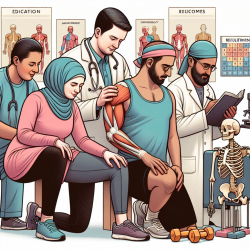Introduction
In the realm of childhood health, the intersection of cultural identity and health outcomes is a burgeoning area of research. The study titled Acculturation and Health Status in the Children’s Healthy Living Program in the Pacific Region provides insightful data on how cultural identity influences child health metrics such as Body Mass Index (BMI) and waist circumference (WC). This research is pivotal for practitioners aiming to improve their skills and outcomes in pediatric health interventions.
Understanding the Research
The study conducted a cross-sectional analysis involving 4,121 participants from the U.S.-Affiliated Pacific Islands (USAPI), Alaska, and Hawai'i. It explored the relationship between parental acculturation/enculturation and child health outcomes. The findings revealed that children of parents who identified with a traditional cultural identity were less likely to be overweight or obese compared to those with an integrated cultural identity. This suggests that maintaining traditional cultural practices may have protective health benefits.
Implications for Practitioners
For practitioners in speech language pathology and other health-related fields, these findings underscore the importance of culturally tailored interventions. Here are some actionable steps:
- Promote Cultural Awareness: Encourage families to embrace and maintain their cultural practices, which may include traditional diets and physical activities.
- Develop Culturally Sensitive Programs: Design health programs that respect and incorporate cultural identities, particularly for those in integrated cultural groups who may benefit from additional support.
- Engage with Communities: Work closely with community leaders and members to understand cultural nuances and integrate them into health interventions.
Encouraging Further Research
While the study provides significant insights, it also opens avenues for further research. Practitioners are encouraged to explore:
- The impact of specific cultural practices on health outcomes beyond BMI and WC.
- Longitudinal studies to assess the long-term benefits of traditional cultural practices on child health.
- The role of language and communication in fostering cultural identity and its subsequent impact on health.
Conclusion
The research highlights the critical role of cultural identity in shaping health outcomes for children. By integrating these insights into practice, practitioners can enhance their interventions and contribute to healthier futures for children. For those interested in delving deeper into the study, the original research paper can be accessed here.










